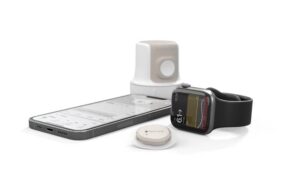
Speaking on the continuous glucose monitor (CGM) maker’s second-quarter earnings call, Dexcom Chair, President and CEO Kevin Sayer explained that the company has — based on feedback from the FDA — been tweaking the software of its next-generation G7, “slightly delaying” the expected timelines for FDA 510(k) clearance and the subsequent U.S. launch.
“We expect FDA clearance and a limited launch later this year and a large commercial launch in the U.S. in the first quarter of 2023,” Sayer said.
He added that, with preliminary discussions with payors progressing well, the company is set for a “big launch early next year.”
“[Payors] understand what this product will mean for our customers and people with diabetes broadly, giving us increasing confidence in the ability to ramp up commercial coverage quickly,” Sayer added.
There were suggestions that the G7 would be looking at FDA clearance following last month’s American Diabetes Association Scientific Sessions, with the company confident in a launch this year. However, with the changes to the software, the wait will be a little longer. The device won CE mark in March, and the company highlighted an updated sensor algorithm for G7 that received CE mark this quarter, making the latest G7 sensor technology available to international markets.
G7 has demonstrated exciting results in glucose monitoring in a number of recent clinical trials, with one highlighting its accuracy and another showing strong performance in pediatric users.
The device features a 60% size reduction from the previous generation, the G6, plus a 30-minute warmup period (down from waiting two hours for glucose readings to begin in the past), more information in one place with personalized insights, extended-wear design and more. Sayer pointed to the simplicity of the wear experience, with the process consisting of unscrewing a cap, putting the sensor on your body and pushing a button. The device is turned on and can be paired with a smartphone
When asked on the earnings call about the changes to the software, Sayer said that, through a strong relationship and ongoing discussions with the FDA, the decision was made to change “absolutely everything.”
Dexcom has changed the algorithm, certain techniques, every manufacturing procedure in place and it completely rewrote the app and software experience, Sayer said. He pointed out that all that change represents a lot for the FDA to digest and a lot for the company to submit, leading to delays.
He said that the company is still not done with the changes and is “working very quickly” to be done with it.
“We discussed several options that we had and we decided the best option at this time was to revise the software and file it differently,” Sayer said. “And we’ve added a few other features to it as well, based on our discussions with them, we’re in the middle of revising the software for that.”
Sayer said the company is “very comfortable” with what it’s gone through with the FDA, and the outstanding major item remains the software revision and filing of the revised software.
Dexcom still anticipates a limited launch in the U.S. in the fourth quarter and a rollout early in 2023.
“We’re very bullish about the progress we’ve made with the payors as far as getting the G7 reimbursed because they can see how important it’s going to be for our patient base,” Sayer said. “So, on the one hand, while we have the delay in the approval and the launch that we’d all like to be faster, the other thing we’re seeing on the other side is a lot of cooperation in the payor community and in the channel in getting the same position for reimbursement very quickly after approval.
“We can get the launch out — in not too different of a timeframe on a reimbursed basis from what we expected in the beginning — so those two factors together add to where we think we are.”
BTIG analyst Marie Thibault wrote in a report that expectations are tempered on performance, but The Street remains confident in the company’s ability to grow.
“We reduce our 2022 sales forecast and push some 2H22 revenue into 2023 to reflect the G7 FDA timeline,” Thibault wrote. “Though DXCM shares could be weak tomorrow, we remain bullish on long-term growth and the opportunity for CGM market expansion.”

